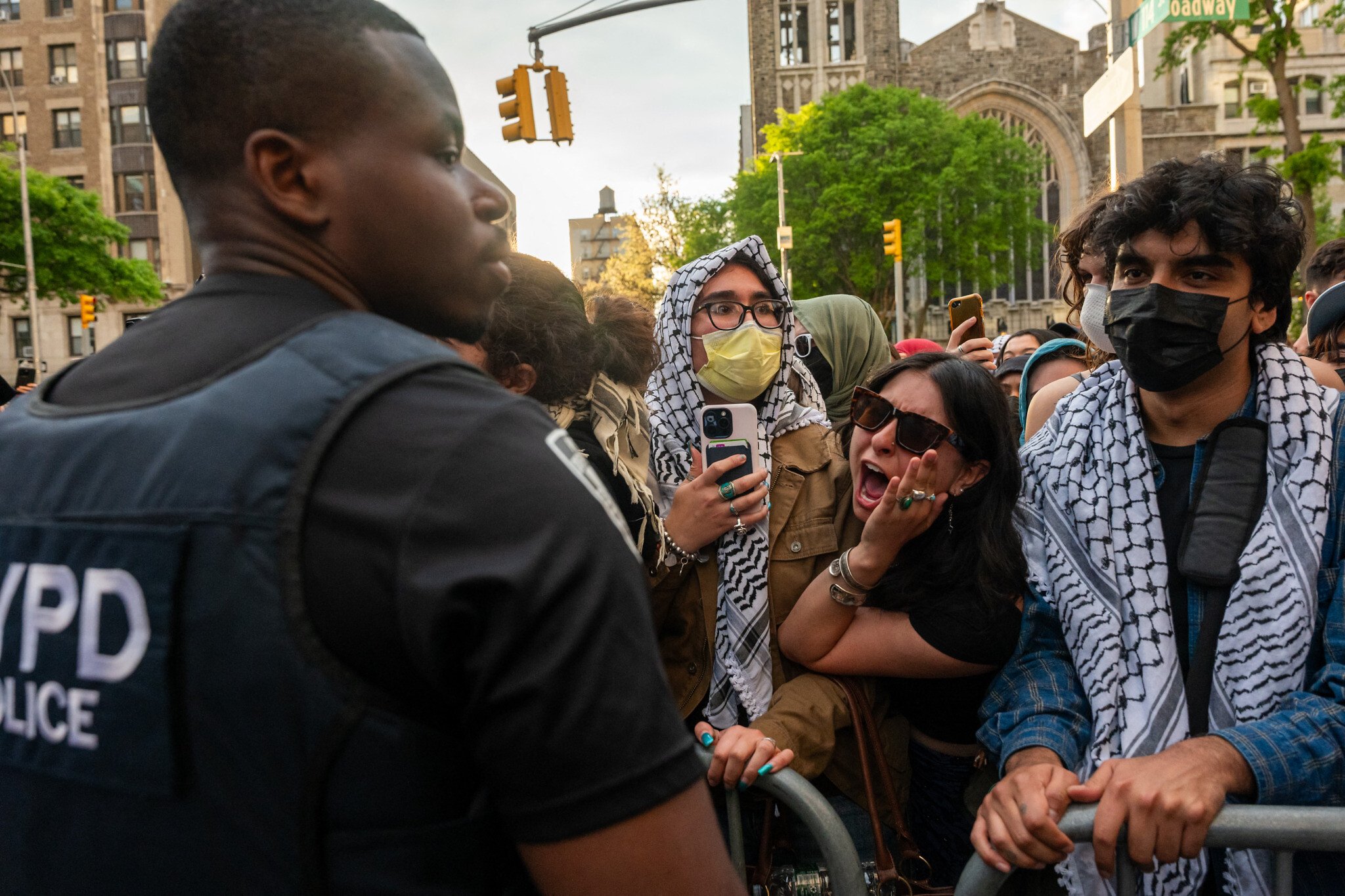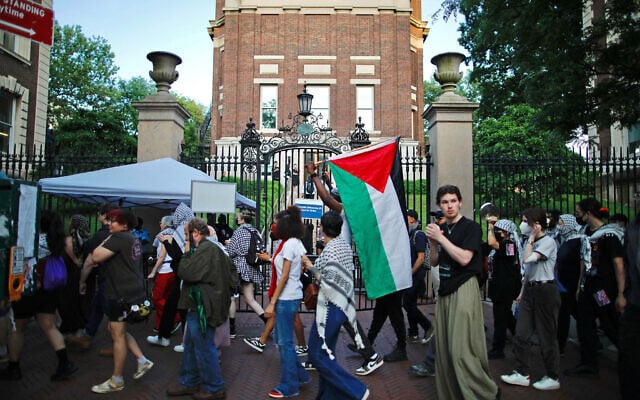


NEW YORK — Columbia University and its affiliate Barnard College, both epicenters of anti-Israel protest activity following the start of the Gaza war, ranked last in an annual survey of free speech on US campuses.
The Foundation for Individual Rights and Expression (FIRE), a nonpartisan advocacy group for free speech protections, released the report on college free speech rankings on Tuesday.
The report measured free speech on 257 campuses, based on surveys of 68,510 students, and covers the 2024-2025 academic year.
Barnard placed last, in 257th place, and Columbia was second to last. The two campuses are across the street from each other and student activities, including protests, are intertwined.
Columbia’s low ranking was due to investigations, classroom disruptions and suspensions last year, mostly related to anti-Israel activism.
Student perceptions also played a role. While Columbia scored highly for political tolerance, there was also a high level of discomfort expressing ideas and self-censorship, and a low level of administrative support.
A majority, 63% of students, said they self-censored every month; 74% said shouting down a speaker on campus was acceptable; and 26% said using violence to stop someone from speaking on campus was acceptable, at least in rare cases.
There were four liberal students for every conservative student on campus, the survey said.

Some of the free speech incidents cited in the report included campus officials investigating a student for criticizing transgender ideology; anti-Israel students barging into an Israeli professor’s class; removing a professor from teaching roles due to anti-Israel rhetoric, such as calling Israel a “colonial settler state”; the university president speaking out against a visiting professor who posted support for Hamas and Hezbollah; repercussions against students for anti-Israel activism; anti-Israel students heckling Hillary Clinton as a “war criminal.”
FIRE recommended that Columbia commit to institutional neutrality and limit investigations to “conduct that clearly falls outside the bounds of protected speech.”
Barnard landed in last place due to incidents including the suspension of student journalists who covered anti-Israel protests and anti-Israel students shouting at the college president during a speech, and the campus environment, such as a lack of administrative support, political tolerance, and high levels of self-censorship and disruptive conduct.
The survey found that 61% of Barnard students self-censored monthly; 78% said shouting down a speaker was acceptable; and 33% said using violence to stop a speaker was acceptable. There were 14 liberal students for every conservative.
The sixth annual campus free speech report showed a persistent decline in support for free speech on campuses.
“This year, students largely opposed allowing any controversial campus speaker, no matter that speaker’s politics,” said FIRE’s president, Greg Lukianoff. “Rather than hearing out and then responding to an ideological opponent, both liberal and conservative college students are retreating from the encounter entirely.”
Contributing factors included clashes over the Israeli-Palestinian conflict and pressure on universities from the Trump administration, the group said. The Trump administration has put heavy pressure on Columbia to rein in antisemitism on campus. A Columbia antisemitism task force has found widespread discrimination against Jews and Israelis on the campus.
Overall, 34% of students said using violence to stop a campus speaker was acceptable, 72% said shouting down speakers was acceptable, and 24% reported self-censoring.
More than half of the student respondents — 53% — said the Israeli-Palestinian conflict was a difficult subject to have an open and honest conversation about, making the conflict more taboo than any other topic.
The top-ranked schools were Claremont McKenna College in California, Purdue University in Illinois, and the University of Chicago.
The issue of campus free speech took on increased prominence after Charlie Kirk, a leading conservative, was assassinated while speaking at Utah Valley University.

